There are two ways of creating a bootable DOS filesystem:
The methods documented herein will create a 2.88MB boot floppy (as 1.44MB often hasn't enough space to hold the BIOS updates for modern motherboards). Since actual 2.88MB floppy drives (and media) are difficult to find, these images are primarily useful with  Memdisk. If you need a different size filesystem, just adjust the dd or truncate commands as appropriate. Just make sure that the final image is a multiple of 512 bytes in length.
Memdisk. If you need a different size filesystem, just adjust the dd or truncate commands as appropriate. Just make sure that the final image is a multiple of 512 bytes in length.
Note that using Memdisk may not work with certain BIOS update utilities!
DosBox
- Make sure that you have a copy of DosBox and a copy of a Windows 98 MS-DOS boot floppy.
- Create a directory to hold the disk images, so that you don't lose them
mkdir ~/boot cd ~/boot
- Create a blank 2.88MB floppy image and format as FAT12
dd if=/dev/zero of=floppy.img bs=1024 count=2880 mkdosfs -vvv floppy.img
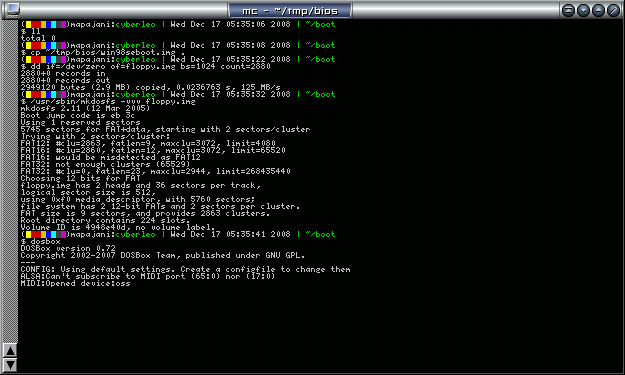
- Launch DosBox
dosbox
- Within DosBox, mount the directory containing the images, and issue a boot command to boot the Windows 98 MS-DOS boot floppy
mount c ~/boot c: boot win98s~1.img floppy.img
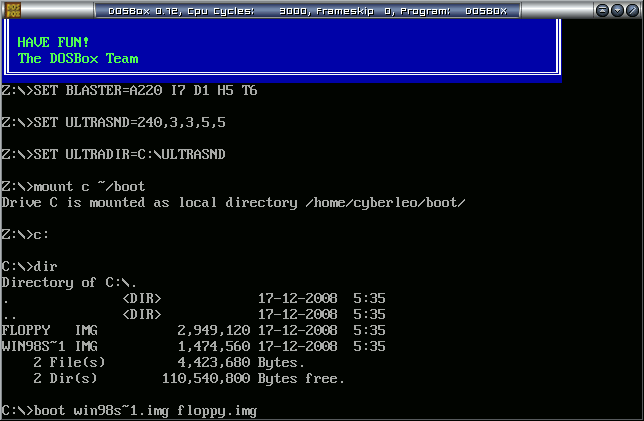
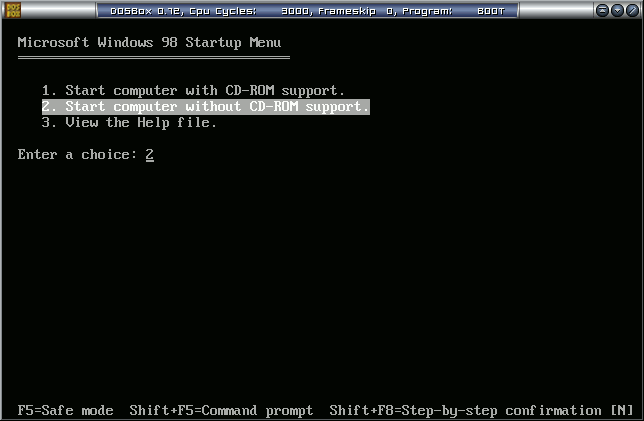
- After Windows 98 MS-DOS boots, you will be dropped to a DOS prompt. Copy the system over to the B: disk as usual
sys b:
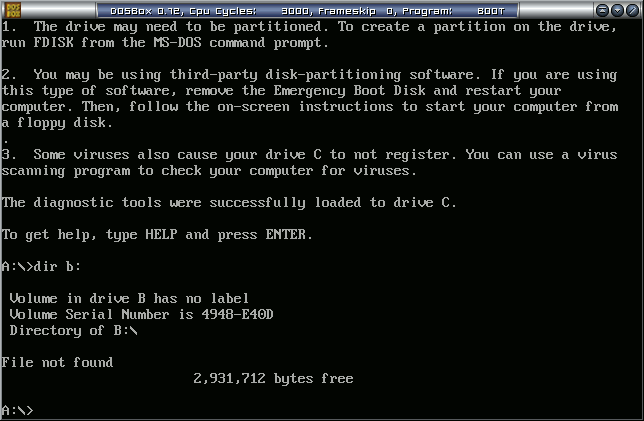
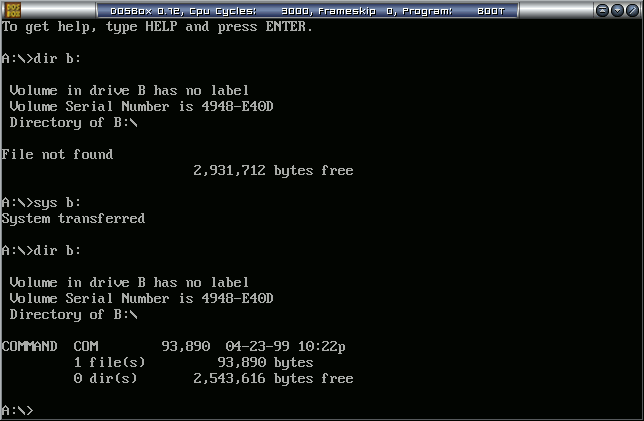
- The new disk image should now be bootable, and fully compatible with memdisk (you don't really have a real 2.88MB floppy drive lying around, do you?)
sys-freedos.pl
You will need
- mtools
- mkdosfs from dosfstools
- kernel.sys and command.com from the
 FreeDOS distribution (fdbasecd.iso:/freedos/setup/odin)
FreeDOS distribution (fdbasecd.iso:/freedos/setup/odin) sys-freedos.pl from the
 sys-freedos tarball
sys-freedos tarball- This requires perl, and probably also nasm to build the boot block
# Make a file truncate -s $(( 2880 * 1024 )) floppy.img # Add FAT12 filesystem mkdosfs -vvF12 -n DOSBOOTFLOPPY floppy.img # Copy in the FreeDOS files mcopy -i floppy.img kernel.sys command.com :: # Hide them, for consistency mattrib -i floppy.img +H +S ::kernel.sys ::command.com # Install boot block sys-freedos.pl --disk=floppy.img
- The new disk image should now be bootable
